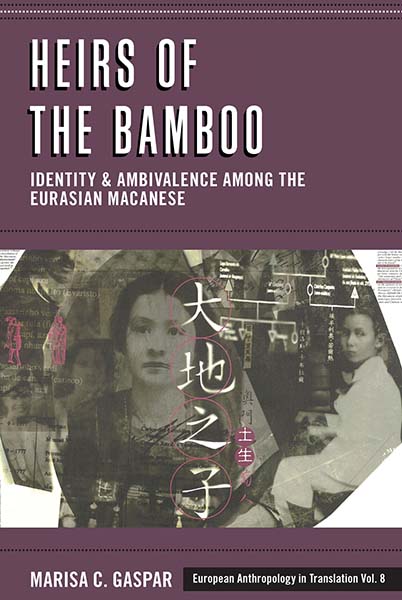“Her meticulous interdisciplinary research and insightful analysis offer a comprehensive exploration of the Macanese community’s ambivalent identity and multicultural practices, making a significant contribution to the study of Macanese history.” • Journal of the Royal Anthropological Institute (JRAI)
“Focusing on the manipulation of language and food, Marisa Gaspar’s monograph constitutes obligatory reading for anyone who is puzzled by the way in which the past challenges the future and vice versa.” • João Pina-Cabral, University of Kent
“A valuable contribution for the ethnographic study of the Macanese… The book highlights how, in the current post-transition period, the prevailing Portuguese presence and its cultural influence shapes the unique identity of Macao.” • Daniel Seabra Lopes, Universidade de Lisboa
“[The author] is able to put into practice her training in anthropology, without ever leaving aside an interdisciplinary approach that gives to her works a contemporary historical-political dimension.” • José Luís de Sales Marques, Institute of European Studies of Macau
In 1999 Macao, previously a territory under Portuguese rule, was handed over to the People’s Republic of China and transformed into one of the gambling capitals of the world. These political and economic phenomena were accompanied by unprecedented social changes that, ultimately, have redefined the Macanese identity. This book is about the Macanese living in Portugal and their intimate social networks in loco and interactions with their counterparts in Macao and elsewhere in the diaspora, by the use of Internet. Memory and ambivalence, deeply associated with kinship, language, food and heritage, are the cornerstones of this research, which overturns colonial stereotypes and concepts of Macanese cultural purity.
Marisa C. Gaspar is a postdoctoral fellow at SOCIUS/CSG – Lisbon School of Economics & Management (ISEG), Universidade de Lisboa, and a visiting researcher at the Institute of European Studies of Macao.
LC: DP534.M33 G37 2020
BISAC: SOC002010 SOCIAL SCIENCE/Anthropology/Cultural & Social; SOC007000 SOCIAL SCIENCE/Emigration & Immigration


